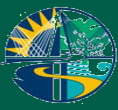Completed Projects
Members of PHYGEO ENVI Lab participate in research programs. Indicative projects are listed:
International

Water, energy, food, and ecosystems (WEFE) are interconnected, comprising a coherent system (nexus) dominated by complexity and modulated by climatic and socio-economic drivers. Resource constraints, and their interconnectedness could hamper economic development, including optimal trade, market and policy solutions. Moreover, policy objectives tend to be developed with little consideration to multiple sectors, and policy implementation may change nexus characteristics, in turn affecting actor behaviour and policy formulation. NEXOGENESIS will develop and validate: (a) a coherent cross-sectoral policy-making framework at different scales addressing climate and socio-economic change, as well as stakeholder behavior and transboundary (diplomacy) issues, developed for and validated by stakeholders, policy makers, and academics; (b) a Self-Learning Nexus Assessment Engine (SLNAE) exploiting reinforcement learning, and supporting streamlining water-related policies into the WEFE nexus; (c) a WEFE Nexus Footprint, accompanying the SLNAE. NEXOGENESIS will apply its approach to four European and one case study in southern Africa. Through the case studies, strong stakeholder engagement and validation of output, NEXOGENESIS will improve policies and policy making processes to enhance cooperation and help the EU achieve targets related to the Water Framework Directive, the greener CAP, Green Deal ambitions, as well as ambitions on water diplomacy. NEXOGENESIS outcomes, both during and after the project, will have a major impact on advancing nexus understanding and governance, resulting in a more innovative and more competitive European Union regarding nexus policy-making, backed up by state-of-the-art evidence. NEXOGENESIS will continue to drive impact after the end of the funding period through dedicated outscaling and exploitation objectives to maximize future impacts and will bring project results to extended group of users via an innovative stakeholder engagement process.
This project has received funding from the European Union’s Horizon 2020 research and innovation programme (Website: www.nexogenesis.eu, Grant agreement #: 101003881)

The LIFE ADAPT2CLIMA project aims at increasing the knowledge on the vulnerability of EU Mediterranean agriculture to climate change and at developing and to support decision making for adaptation planning. To this aim a set of climate, hydrological and crop simulation models for the assessment of climate change impacts on agriculture will be deployed. Moreover, a decision support tool for the elaboration of adaptation strategies for the agricultural sector will be also developed. Three amongst the largest islands in the Mediterranean basin (Crete – Greece, Sicily – Italy and Cyprus) will be the pilot areas of the project. The National Observatory of Athens is the coordinator of the project while the project partners are the Agricultural Research Institute of Cyprus (ARI), the Institute of Biometeorology of the National Research Council of Italy (IBIMET-CNR), the National Technical University of Athens (NTUA), the Department of Agriculture, Rural Development and Mediterranean Fisheries of the Region of Sicily (Italy) and the Region of Crete (Greece).
The project is co-financed by the LIFE programme for the Environment and Climate Action (2014-2020).

SIM4NEXUS increases the understanding of how water management, food production and consumption, energy supply and land use policies are linked together, and how they relate to climate action. The research activities offered solid ground on the benefits of using a Nexus approach, primarily to exploit and create synergies between policies and avoid conflicts between policies. European policies for water-land-energy-food-climate sectors reckon with trade-offs in other sectors. However, opportunities for synergies are less explored and there is no institutionalised procedure for a comprehensive Nexus assessment of new policies. New integrating themes (e.g., circular and low-carbon economy related to resource efficiency and planetary boundaries) can stimulate a Nexus approach.
This project has received funding from the European Union’s Horizon 2020 research and innovation programme under grant agreement No 689150 SIM4NEXUS

The project aims to:
- assist water managers and policy makers to identify long-term trends of water demand for the Maltese islands, and
- support long-term planning of water resources system whilst considering future trends in demographic, socio-economic, environmental, and technological factors, as well as land use and climate change fluctuations.
This call for tenders is co-financed by the European Union under the LIFE Programme.
National

The purpose of this project is the environmental assessment of alternative interventions that aim to protect the area under study from erosion problems as well as the assessment of the effects of the proposed intervention and the proposal of remedial measures. The project is structured in two stages:
– evaluation of the most important parameters that compose the current state of the natural and man-made environment in the immediate and wider study area.
– evaluation and analysis of all alternative interventions proposed in order to protect the study area from the problem of erosion observed along the coastline and prioritization of proposed alternative interventions including zero solution based on technical, economic and social criteria.

The aim of the project is the development of automated processing techniques for digital geographical and statistical data of the Hellenic Statistical Authority. Primarily, the formulation and enrichment of the data/metadata to import them into geospatial database in order to correlated them with environmental data in urban/suburban/rural areas at municipality level with the ultimate goal the protection of local population from natural disasters (eg floods, fire events, etc.). The required processing techniques will be combined with remote sensing techniques in order to automatically determine the boundaries of areas of interest and to complete the database with the appropriate vector files.

Uptextile will be the basis for policy-making for textiles in the context of the circular economy at the national level, mainly in terms of separate collection in combination with innovative ways of informing and raising public awareness. The project focuses on the management of textiles in the context of the circular economy, a stream of municipal waste which is a priority for the EU towards Climate Neutrality.
The textile sector is considered to be the 4th most harmful sector in the environment in all stages of the supply chain, with the typical example that the fashion industry is responsible for 10% of global carbon emissions. Based on the above, the project will promote actions that will strengthen efforts to reduce the landfill of textiles, promote the prevention, reuse and recycling in the context of the circular economy, and the creation of an Alternative Management System.
At the same time, the project will have a significant social impact, as it will help to improve the quality of life of citizens through the positive environmental impact, which has the prevention and reduction of waste but also in the development of culture and changing habits of citizens, for separate collection in the target groups, both textiles and in general.
The project will have a significant social and long-term economic impact, especially for companies active in the field of production, processing and marketing of textiles. The actions of the project respond to the need for a fair and inclusive transition to a circular economy, as they are also addressed to small and medium-sized enterprises in the framework of the pilot application, in order to inform them about the developments in the sector, the ways that will influence them and promote the creation of partnerships between companies in the various stages of the supply chain.
With the workshops of the live workshops and the event “UpTextile Fashion” it will be possible to achieve synergies between the teams from the field of production, sales, collection, repair and consumers, with the ultimate goal of resource efficiency and exploring the possibilities of synergy between the main sectors of the supply chain at local level.
In addition, the actions will raise the awareness of businesses and consumers about the environmental issues that arise around the textile sector. This can lead to the search and adoption of sustainable ways of production and marketing, for businesses but also sustainable consumption, for consumers, who will have the opportunity to get to know the businesses operating in their area and strengthen them with future markets. Finally, in the context of strengthening public policy, a Policy Paper will be created, with the possibilities and prospects of re-use and upcycling of textiles in Greece, which will significantly contribute to the national effort to strengthen prevention and re-use.
At the social level, in addition, the project’s contribution to the creation of new jobs in each partner (TAG GREEN, EDEM, NTUA) should be also considered and possibly at the level of associates of the Municipality as well as the additional amount of textile collection, expected due to implementation of the project.
Website: https://www.uptextile.gr/


